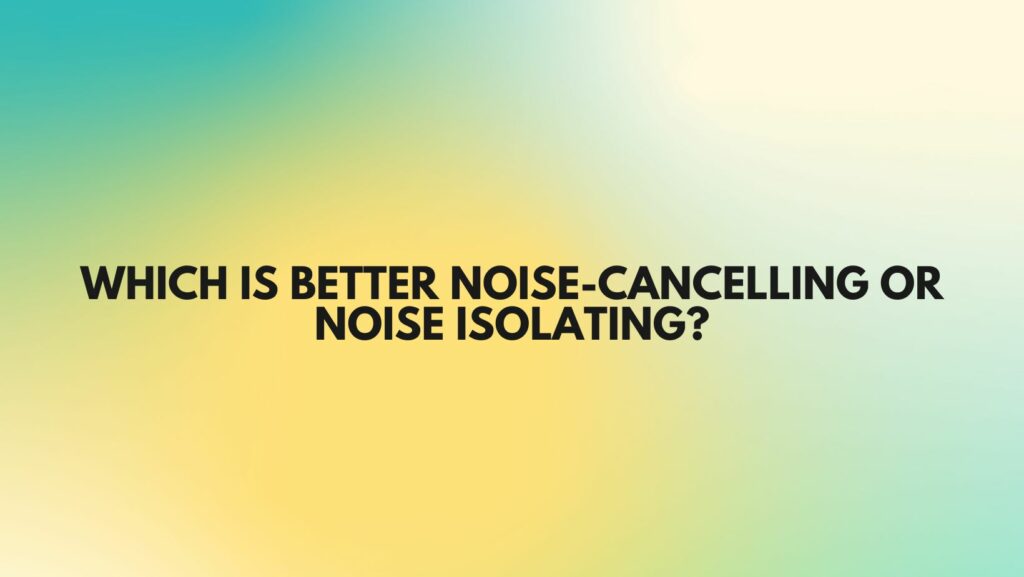Noise cancelling and noise isolating are both technologies used to reduce noise exposure. Noise cancelling is an active noise reduction technique that uses electronics to cancel out noise, while noise isolating is a passive noise reduction technique that blocks out noise with physical barriers.
Noise cancelling is generally considered to be the better technology for noise reduction. It is more effective at cancelling out a wide range of noises, including high-frequency noises and sudden noises. Noise cancelling is also more effective in noisy environments, such as airplanes, trains, and busy streets.
Noise isolating is a good option for those on a budget, as it is more affordable than noise cancelling. It is also a good option for those who need a simple and easy-to-use solution. Noise isolating is effective at blocking out low-frequency noises, such as the rumble of an airplane engine or the hum of a washing machine. However, it is not as effective at cancelling out high-frequency noises or sudden noises.
Here is a table that summarizes the key differences between noise cancelling and noise isolating:
| Feature | Noise cancelling | Noise isolating |
|---|---|---|
| How it works | Uses electronics to cancel out noise | Uses physical barriers to block out noise |
| Effectiveness | More effective at cancelling out a wide range of noises | More effective at blocking out low-frequency noises |
| Pros | More effective, more versatile | More affordable, simpler technology |
| Cons | More expensive, more complex technology | Less effective at cancelling out high-frequency noises |
Which technology is right for you?
The best noise reduction technology for you will depend on your individual needs and budget. If you need the best possible noise reduction and are willing to pay for it, then noise cancelling is the better option. If you are on a budget or need a simple and easy-to-use solution, then noise isolating is a good option.
Here are some situations where noise cancelling may be a good option:
- You travel frequently by plane or train.
- You work in a noisy environment.
- You are sensitive to noise and need the best possible noise reduction.
Here are some situations where noise isolating may be a good option:
- You are on a budget.
- You need a simple and easy-to-use solution.
- You are primarily concerned with blocking out low-frequency noises, such as the rumble of an airplane engine or the hum of a washing machine.


